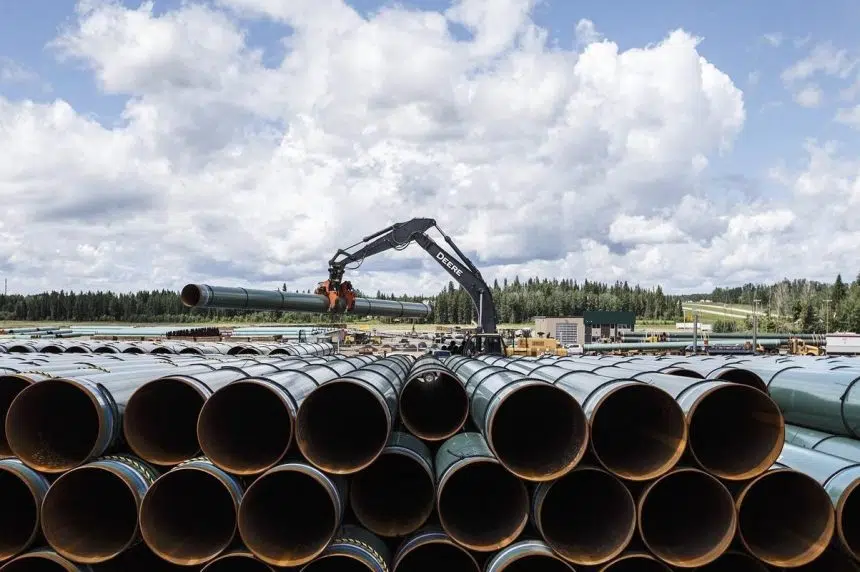Delays and design changes have driven the cost to build the Trans Mountain pipeline expansion up by about 70 per cent to $12.6 billion from the $7.4 billion estimate made three years ago, the company says.
The project has cost about $2.5 billion to date, including the impact of delays and additional regulatory processes, leaving an additional $8.4 billion needed to complete construction, plus $1.7 billion of financial carrying costs, said president and CEO Ian Anderson on a conference call on Friday.
He said the project owned by the federal government is now expected to be in service by December 2022.
“It’s really important to know that the project that we’re all working on and building today is not the project that we originally envisioned and introduced early in 2012,” he said.
“Nor is it the one we last provided a cost estimate for in early 2017. It isn’t even the one we envisioned as early as 2018 when our ownership changed. It’s much, much more today.”
About half of the higher cost was caused by delays and the other half by scope changes such as adding thicker pipe in some areas and enhanced leak detection provisions, he said.
Anderson says the company is recommending that Ottawa, as owner and lender, set aside a further $600 million reserve for cost impacts beyond the control of Trans Mountain.
The estimate of $7.4 billion was made in 2017 by the previous owner, Houston-based Kinder Morgan, Inc., which sold the expansion project and existing pipeline to the federal government in 2018 for $4.5 billion amid doubts that it could be built in the face of opposition from the province of B.C.
Opponents have attacked the greenhouse gas emission and oil spill risks of the pipeline project but they’ve also charged it will be a money-loser trying to tap unproved markets in Asia and that it will fail financially and leave the public holding the bag.
The total cost of more than $17 billion is higher than feared and means it will be impossible for the federal government to sell it to a new owner as planned, said Sven Biggs, climate and energy campaigner for Stand.earth, in an interview on Friday.
“Any time a major project increases its cost by this much you have to hit the pause button and reconsider whether or not you’re still getting value for the taxpayer,” he said.
“My humble assessment is that, no, this project has never been in the interests of taxpayers. It was very difficult to justify it at $7 billion or $9 billion.”
But Anderson said it will be a money-maker right out of the gate.
“The cost of the project as you know is shared by Trans Mountain and our shippers and they will tell you that this continues to be a project they very much want and need, one that will bring benefits to all Canadians,” he said.
“The rate of return on this project is without question. The day we turn on the taps, it will start making money. It will make money every day through its contractual period of 20 years.”
He pointed out 80 per cent of the space on the pipeline is contracted for 20 years to 13 clients including domestic oilsands producers like Suncor Energy Inc. and Canadian Natural Resources Ltd., as well as international firms such as Total S.A. and a subsidiary of PetroChina.
The federal government believes it is important to “make the necessary investments to open up new markets” for Canadian oil, said Finance Minister Bill Morneau in a statement on Friday.
“Safety and design enhancements have achieved a higher standard for environmental protection. It now supports more union jobs in B.C. and Alberta and is providing training opportunities. This is now a better project, moving forward in the right way,” he said.
Opponents of the pipeline expansion have vowed to do whatever it takes to stop the project despite losing a legal challenge before the Federal Court of Appeal earlier this week.
The four First Nations who lost the court challenge on Tuesday have 60 days to seek leave to appeal to the Supreme Court of Canada.
The expansion project would triple the capacity of the existing pipeline between Edmonton and a shipping terminal in Burnaby, B.C. to about 890,000 barrels per day of diluted bitumen, lighter crudes and refined products.
The Canadian Press







